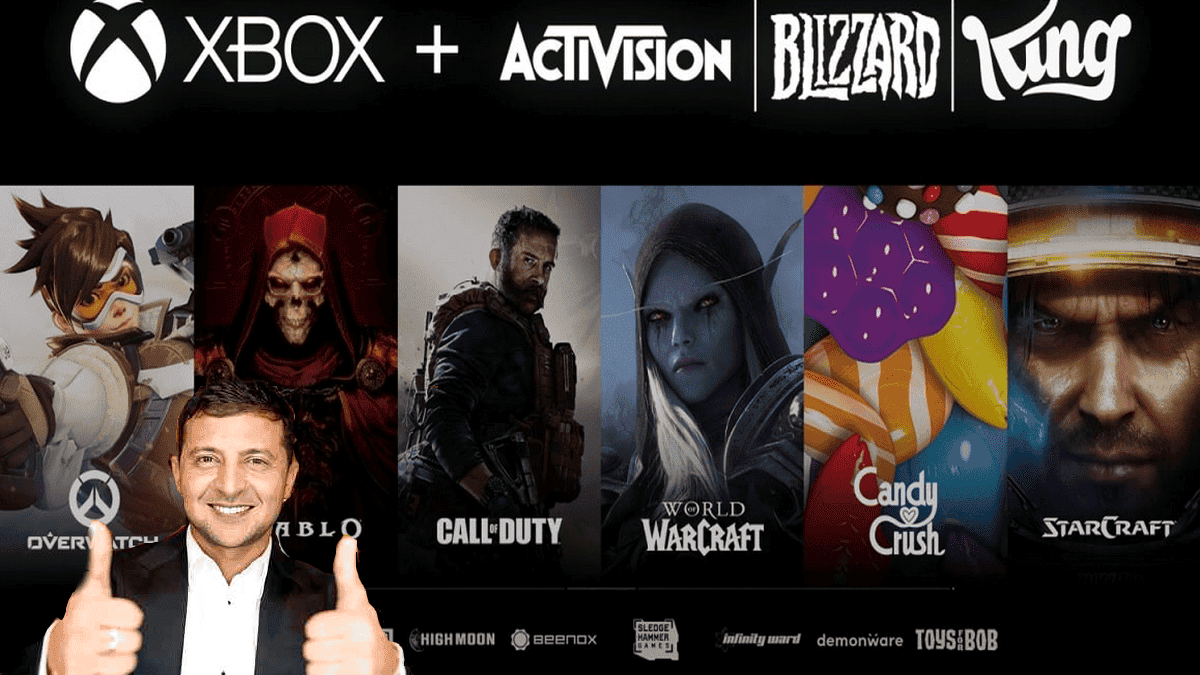The UK’s Competition and Markets Authority (CMA) blocked Microsoft’s proposed $68.7 billion deal for Activision Blizzard in April 2023. The CMA cites concerns that it would stifle competition in the cloud gaming market. Microsoft and Activision Blizzard both pushed back against the decision, with Microsoft claiming it would discourage technology innovation and investment in the UK. On its part, Activision Blizzard vowed to reassess its growth plans for the UK.

Recently, Microsoft President, Brad Smith criticized the CMA’s decision. He argues that it was based on “flawed analysis” and that the regulator had failed to take into account the competitive landscape of the gaming industry. However, British business minister, Kemi Badenoch rejected Smith’s criticism. She stated that she did not agree with his assessment of the situation.
She said
“We were not an outlier if you talk about the size of the market… At some point, we have to decide are we making (decisions) in a way that’s right for us or just trying to do what everybody else is doing? So no, I don’t agree with his comment … If the CMA is doing something wrong, I think that will become evident through a pattern which is not yet the case.”
In this article, we will explore the background of the Microsoft-Activision Blizzard deal and the reasons behind the CMA’s decision. We will also examine Microsoft’s response to the decision and the UK government’s position on the matter.
Background
In January 2022, Microsoft announced its intention to acquire Activision Blizzard, one of the world’s largest video game companies, for $68.7 billion. The deal would have given Microsoft control of popular franchises such as Call of Duty, World of Warcraft, and Candy Crush. Microsoft hoped that the acquisition would help it compete more effectively with rivals such as Amazon and Google in the fast-growing cloud gaming market.
However, the CMA launched an investigation into the proposed deal in February 2022, citing concerns that it would lead to higher prices for consumers and less innovation in the gaming industry. The regulator was particularly concerned that the deal would give Microsoft too much control over the cloud gaming market, which is expected to grow rapidly in the coming years.

The CMA’s Decision
In April 2023, the CMA announced that it was blocking the Microsoft – Activision Blizzard deal. The regulator concluded that the deal would stifle competition in the cloud gaming market and harm consumers by reducing innovation and increasing prices. The CMA also criticized Microsoft’s proposed remedies, arguing that they were insufficient to address the regulator’s concerns.
Microsoft’s Response
Microsoft was quick to criticize the CMA’s decision, arguing that it was based on flawed analysis and that the regulator had failed to take into account the competitive landscape of the gaming industry. Microsoft President Brad Smith claimed that the CMA’s decision would discourage investment in the UK and harm the country’s reputation as a hub for technology innovation.
The UK Government’s Position
Despite Microsoft’s criticism, the UK government has stood by the CMA’s decision. Business minister Kemi Badenoch recently stated that she did not agree with Microsoft’s assessment of the situation. The government has also defended the CMA’s decision, arguing that it was based on a thorough analysis of the market and that it was necessary to protect competition and innovation in the gaming industry.
Conclusion
The UK’s decision to block Microsoft’s proposed acquisition of Activision Blizzard has sparked controversy and criticism from both sides of the deal. While Microsoft has argued that the decision will harm innovation and investment in the UK, the CMA has defended its decision as necessary to protect competition and consumers in the gaming industry. The UK government has also stood by the CMA’s decision, indicating that it believes the regulator’s analysis was sound. It remains to be seen whether Microsoft and Activision Blizzard will appeal the decision, but for now, the deal is off the table.




